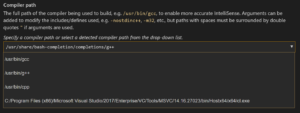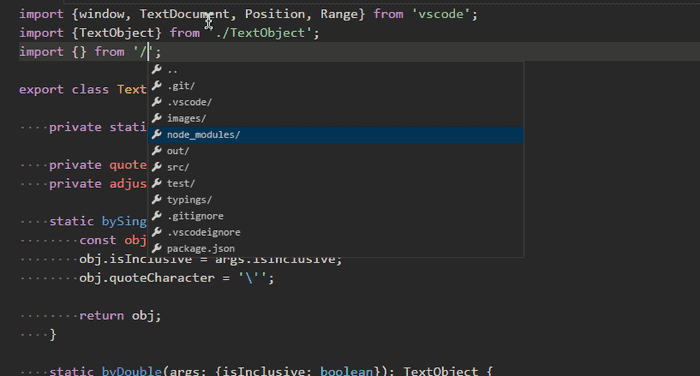
You can verify this with the context menu on a standard library include (Context menu > Peek > Definition): Peek DefinitionĬode Completion and IntelliSense in general is triggered by +: Code Completion With this IntelliSense is able to find the correct header files and definitions with the toolchain used. ‘gcc-arm’ is considered legacy, but not sure what to use otherwise for ARM?

With the Microsoft C/C++ Extension there is a graphical (UI) configuration utility.

If you are unfamiliar what IntelliSense does, check out SetupĪs everything else, the Indexer in Visual Studio Code is using a JSON configuration file. The Eclipse IDE has a similar feature with the ‘ Indexer‘, but imho the one in Visual Studio Code is not only easier to setup but more powerful. The powerful IntelliSense in Visual Studio Code is probably *the* feature in Visual Studio Code. This one is about setting up IntelliSense for Cross Development in Visual Studio Code which allows for browsing symbols or code completion: Code Completion in Visual Studio Outline The previous parts were about installation, project setup, building, debugging and setting up a kit.


 0 kommentar(er)
0 kommentar(er)
